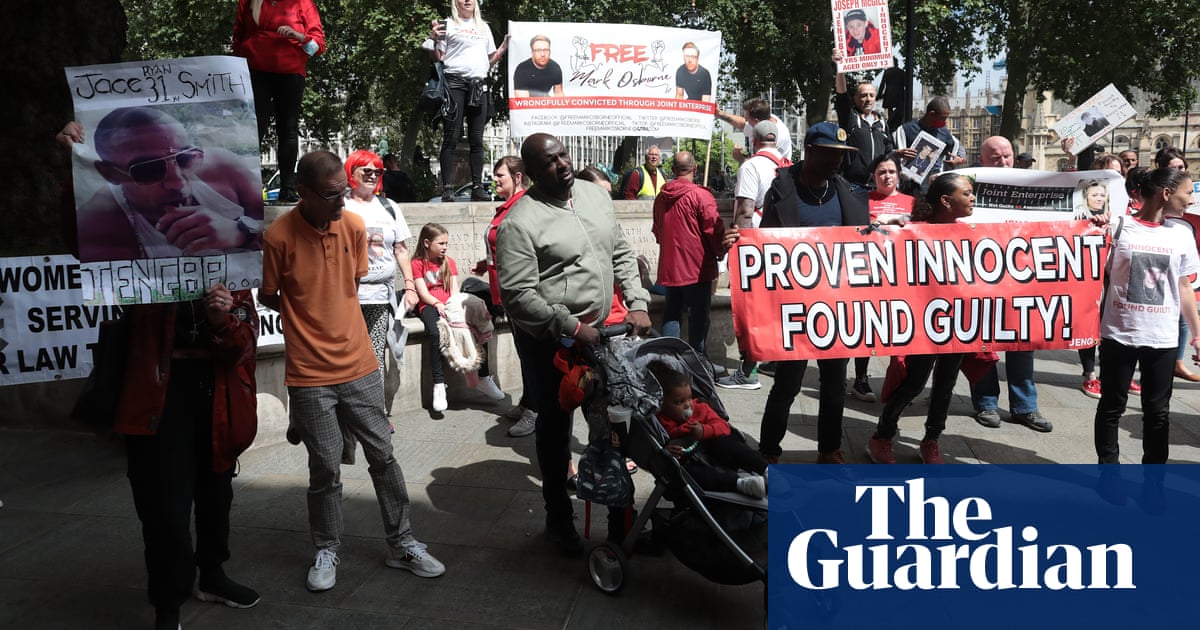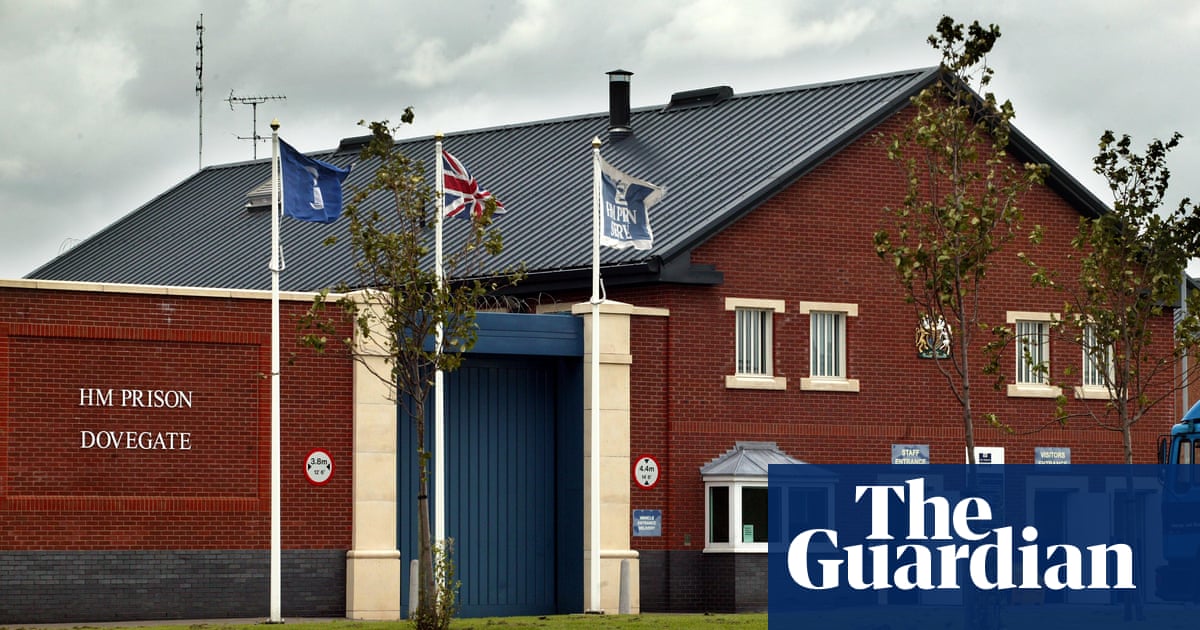
A proposed amendment to English law could stop innocent people being imprisoned under the controversial joint enterprise doctrine.
The private member’s bill, introduced by Labour’s Kim Johnson, MP for Liverpool Riverside, will get its second reading in the House of Commons on Friday. The bill is supported by public figures including TV screenwriter Jimmy McGovern, as well as actors Maxine Peake and Andrew Tiernan, all of whom are ambassadors for the campaign group Jengba (Joint Enterprise Not Guilty by Association).
Under the doctrine, an individual can be jointly charged with the crime of another if the court decides they foresaw that the other party was likely to commit that crime and intended to encourage or assist them. This has resulted in bystanders, or people involved in much lesser criminal offences, being convicted of murder or manslaughter. The change in law would state that defendants have to make a “significant contribution” to the crime to be convicted under joint enterprise.
In 2016, the supreme court ruled that the doctrine had taken a “wrong turn” and been misinterpreted for 30 years. It said courts had been in “error” in treating the fact that a secondary, co-accused had foresight that the principal attacker might carry out a killing as sufficient proof of guilt in assisting or encouraging them. The supreme court declared that a person would be guilty of a joint enterprise offence only if they intended to encourage or assist the person who committed the offence to do it.
That landmark judgment was expected to lead to a reduction in joint enterprise prosecutions and convictions, but a 2022 report for the Centre for Crime and Justice Studies showed that it had no discernible effect, while the number of black people convicted of murder under joint enterprise had risen.
A new problem emerged as a result of the supreme court’s 2016 ruling because of the vagueness of the wording “encourage and assist” – a defendant’s presence at the scene could be see as assisting and encouraging perpetrators. The doctrine has been used to convict people seen fighting but not with the victim, people who are not present at the scene, women who have no control over their boyfriends’ conduct and people who listen to certain kinds of music, such as drill, where trials focus on character and culture, and not contribution to a crime.
The Lammy review of 2017 pointed out that young people tend to be stereotyped, particularly black boys and men, as belonging to gangs, rather than being in groups, with insufficient evidence.
After a legal challenge by the human rights organisation Liberty on behalf of Jengba, in 2023 the Crown Prosecution Service agreed to monitor prosecutions under the doctrine for racial bias. The results of the CPS’s six-month pilot scheme, released last September showed that black people were 16 times more likely than white people to be prosecuted under joint enterprise and that more than half of those prosecuted were from minority ethnic backgrounds.
The data also revealed that joint enterprise prosecutions disproportionately affected children, young people and men. Almost 93% of joint enterprise defendants are male.
Research published this week by Manchester Metropolitan University sociologists Becky Clarke and Patrick Williams also shows that for the 1,088 people on average convicted under JE each year, the total cost to the taxpayer is £1.2bn. The cost of processing and punishing homicide for a single joint enterprise defendant is £1,368,542, and for every additional defendant to be processed and punished when using JE it costs £1,291,031.
Johnson’s bill makes explicit that people must make a “significant contribution” to an offence to be criminally liable. Section 8 of the Accessories and Abettors Act 1861 currently reads: “Whosoever shall aid, abet, counsel, or procure the commission of any indictable offence, whether the same be an offence at common law or by virtue of any Act passed or to be passed, shall be liable to be tried, indicted, and punished as a principal offender.” The amendment changes this to “Whosoever shall, by making a significant contribution to its commission, aid, abet, counsel, or procure the commission of any indictable offence …”
The MP, who became aware of joint enterprise after watching McGovern’s 2014 TV drama Common, said the bill would “allow us to separate those who should be long-term prisoners from those who should not”.
Jan Cunliffe, the co-founder of Jengba, said her her blind son, Jordan, would not have been convicted in 2008 of a joint enterprise murder at the age of 15 if the proposed wording had been in place. “Jordan would not have been given a life sentence and had his life ruined by joint enterprise. Jordan made no contribution to the victim’s death, let alone a significant contribution, yet he served 13 years in jail.”
McGovern told the Guardian that fear of being convicted under joint enterprise leads to innocent people pleading guilty to lesser crimes. “In any joint enterprise murder cases there are some people more culpable than others. Defence barristers have been known to persuade their clients to plead guilty to lesser charges like GBH in order to avoid a trial on a joint enterprise.”
He believes the doctrine has been used to demonise young disadvantaged people. “In the north it’s a law that’s used against working-class youths and in the south it’s used against a lot of black kids. The purpose of the law is to keep scum off the streets, that’s how I think the police see it. That’s how they see all these young people – as scum. And hence the use of joint enterprise.”
Maxine Peake, who starred in Peter Moffat’s Bafta-winning series Criminal Justice, told the Guardian: “What frightens me is how many innocent and vulnerable people are getting caught up in joint enterprise. It’s a dragnet. It’s frightening that you can be with a group of people and an act of violence occurs, and just by being a bystander you can be guilty. It’s a law that’s sweeping up young working-class men and boys; black young men and boys in particular. It’s victimisation of a class of people.”












